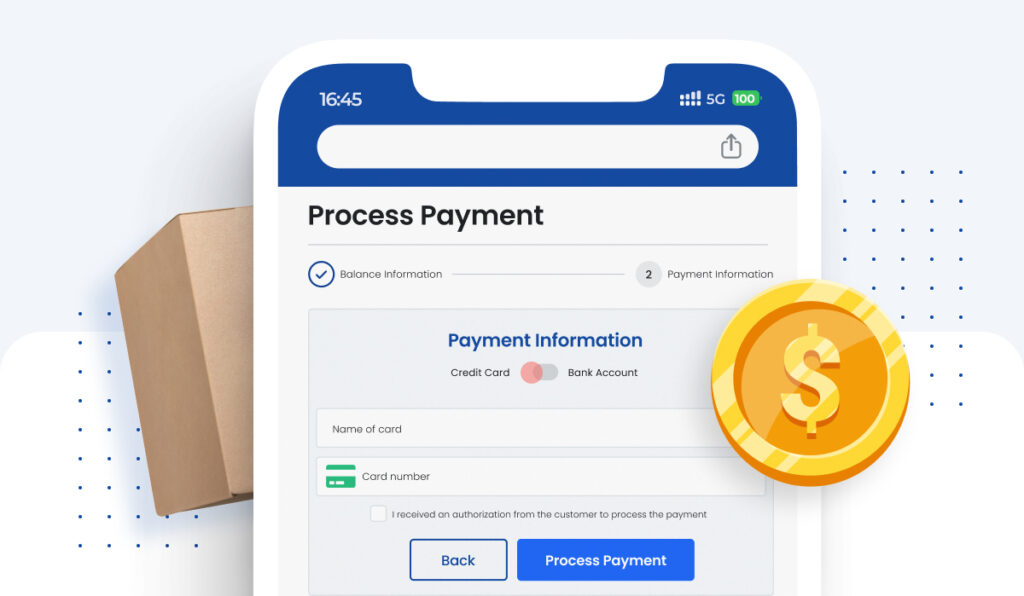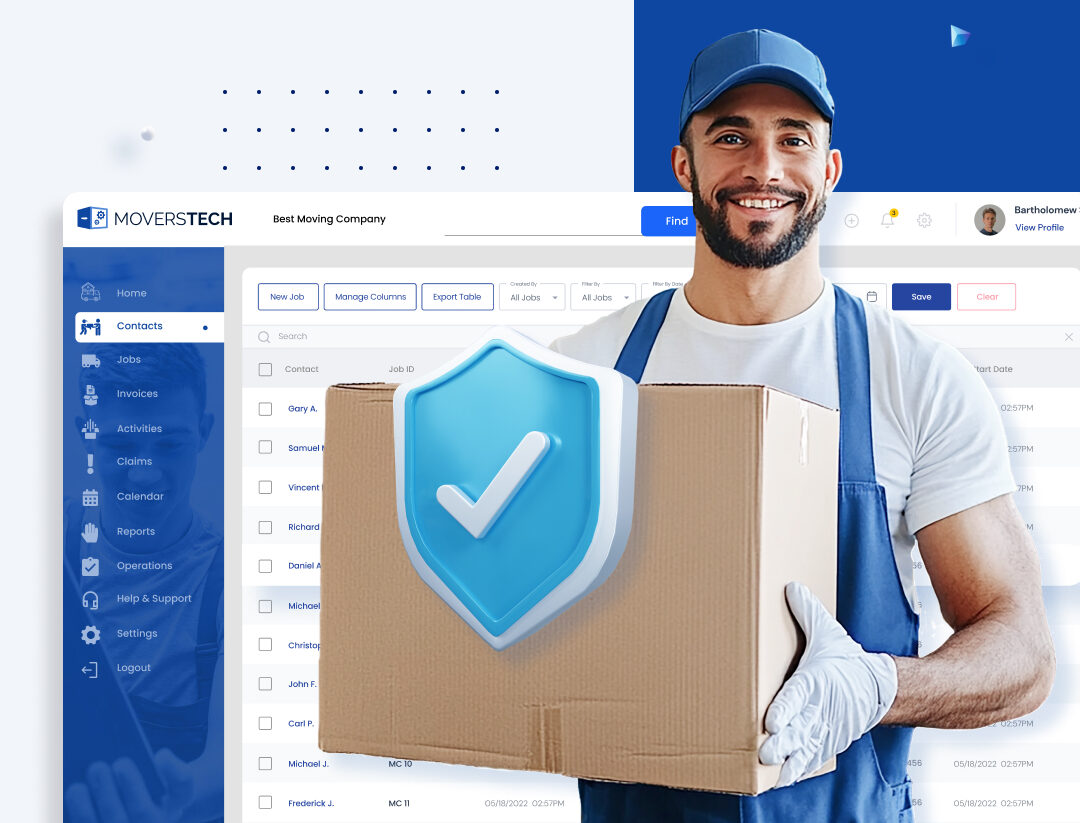Ever had money pulled from your account weeks after a job was done? That’s the sting of a chargeback. If you’ve been in the moving business long enough, you’ve probably felt it. Some chargebacks are honest mistakes, but some of them are not. Either way, they hit your bottom line hard. And if you’re not prepared, they can pile up fast. With MoversTech CRM, you can stay organized, track proof, and respond quickly. We will give you practical tips on handling chargebacks & payment disputes, so you can protect your revenue, respond fast, and keep more of what you earn.
Why chargebacks hurt movers
Let’s start with what a chargeback really is. When a customer disputes a payment with their bank, the bank can reverse that transaction and pull the money back from your account, without asking you first. That alone is frustrating. But the real damage goes deeper. You don’t just lose the job’s revenue. You also get hit with a non-refundable fee from the processor, usually around $25 to $50.
Then there are the hidden costs. Your crew already did the work. You paid for fuel, hours, and maybe even turned away other jobs for that day. Now that effort is wiped out. These losses stack up fast, which is why you need the tips on handling chargebacks & payment disputes. When you know what to do, you can protect your finances.

Top 4 reasons customers file chargebacks
Most movers think chargebacks happen because someone’s trying to get out of paying. Sometimes that’s true. But often, it’s about poor communication or a gap in documentation. Here’s what you need to watch for:
- Final bill higher than estimate: If your team adds charges on move day, like extra stairs or packing materials, the customer might feel blindsided. Even if the charges are valid, the surprise alone can trigger a dispute.
- Damage they feel wasn’t addressed fast enough: If a scratch or break happens and you don’t log it and respond quickly, they may file a chargeback instead of waiting for you to act.
- Job date or time changed last-minute: Unexpected schedule changes can lead to frustration. Some customers use a dispute to push back when they feel their time wasn’t respected.
- “I didn’t authorize this”: Card-not-present payments, especially over the phone, are easy targets for this kind of claim.
Practical tips on handling chargebacks & payment disputes
You can’t avoid every dispute. However, you can make them rare and easier to win. These practical tips on handling chargebacks & payment disputes help you stay one step ahead, protect your money, and respond with confidence. You should:
- Keep everything documented in your CRM
- Build habits that prevent disputes
- Act fast when a chargeback hits
- Watch the numbers that matter
Keep everything documented in your CRM
Now that we’ve covered why disputes happen, let’s talk about how to stop them before they start. Most issues come down to one thing, which is a lack of clear records. That’s where a CRM built for movers makes all the difference. With MoversTech CRM, all your signed documents, quotes, service agreements, and bills of lading are stored in one place. If a customer says, “I never agreed to that price,” you can pull up the signed digital quote in seconds. No hunting through emails or paper files.
ETA updates and payment reminders go out automatically. This helps avoid those “Why are you late?” or “I didn’t know I still owed something” complaints that often turn into chargebacks. And when it’s time to collect payment, one-click payment links make sure you charge the correct card, tied to the right customer.

These features aren’t just for convenience. They’re part of smart tips on handling chargebacks & payment disputes. By keeping everything documented and automated, you reduce the chances of a dispute and make it easier to fight one if it comes up.
Build habits that prevent disputes
Sometimes, the best tips on handling chargebacks & payment disputes are the simple ones: habits your team follows every day. Here’s a quick checklist you can print, share, and actually use on the job:
- Do a walkthrough video or take photos before and after every move. It’s your backup in case damage is claimed later.
- Have the customer sign an updated quote in the app before work starts. Don’t rely on a verbal agreement.
- Send a “Job Complete – Review & Pay” text right after the move ends. It’s clear, fast, and helps avoid confusion.
- Log any damage claims inside your CRM within 24 hours. That timestamped record matters if a dispute is filed.
These habits take a few minutes, but they save hours of stress later. Good documentation and fast follow-up are two of the strongest defenses against chargebacks. Practices like these reduce friction and build trust, which is why they are among the customer service best practices for moving companies.
Act fast when a chargeback hits
Even with the best systems in place, chargebacks can still happen. The trick is responding fast and with solid proof. Here are three quick steps that belong in every mover’s playbook:
- Get the alert. Your payment processor usually sends an email. With MoversTech, you can trigger an automatic ticket so your team doesn’t miss it.
- Grab your proof. Go straight to the customer’s record in the CRM. You will find signed quotes, bills of lading, time-stamped photos, and message logs, all in one place.
- Respond in under 5 days. Submit your evidence clearly and quickly. The faster you act, the better your odds of winning.
Movers who respond quickly and back up their case with clear evidence are more likely to win. On average, businesses that fight chargebacks recover about 45% of them. These tips on handling chargebacks & payment disputes will help you stay in control when the pressure’s on.
Watch the numbers that matter
You don’t need a dozen reports to stay on top of chargebacks. Just focus on two numbers:
- Chargeback rate: This is the percentage of total transactions that get disputed. Keep it below 0.7 percent. Higher than that, and payment processors might flag your account or increase fees.
- Money recovered this quarter: How much have you won back from disputes? This shows whether your documentation and response process are working.
Staying on top of these figures gives you a clearer view of risk and recovery. They’re also part of the financial metrics you should track to keep your business healthy.

Put these tools in place before the next chargeback hits
Chargebacks and disputes are frustrating, but they don’t have to control your business. With the right habits, documentation, and tools in place, you can reduce how often they happen and handle them with confidence when they do. Our tips on handling chargebacks & payment disputes are built around real challenges movers face every day. And when you automate follow-ups, store signed records, and track payments in one place, you save time and protect your revenue. Reliable communication and fast responses are some of the most important benefits of automated follow-ups in moving. They help you avoid disputes and keep customers informed at every step.

